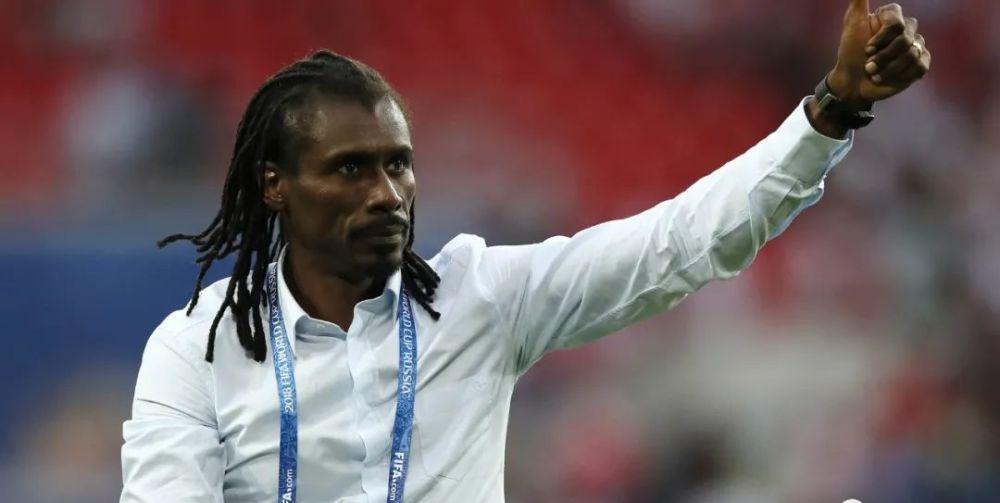Number of characters|1713 characters
It is recommended to read | 5 minutes
The African Cup of Nations came to an end, and Senegal won the championship with a good performance in front of 12 yards. After a king-to-king, senegal was quickly hailed as the "Golden Generation".
Observers love to compare them to the 8-strongers of '02. The one who can cross the 20-year time span and connect the two teams across time and space is Senegalese head coach Ariu Cisse, the Senegalese captain in 2002. In his view, the strength of this Senegal today is far above that of 2002.

People are accustomed to defining racial differences by labels, believing that African teams, despite their creativity, lack the necessary discipline and therefore have a hard time going far in the big game. But the truth is that of that Senegalese team 20 years ago, only 2 players were born on Senegal footing. Most of them play in France. The then head coach, Bruno Metsu, cissé's spiritual mentor, had the first criteria for selecting players: tenacity and discipline. Incidentally, Meitsu's experience is legendary: he later converted to Islam and was buried in Senegal in 2013 under the name Abdul Karim Metsu.
▲ Brüno Metsu, who led Senegal to the quarter-finals in 2002
In that team in 2002, there were no stars. The two players did join Liverpool after the World Cup, but Liverpool defender Carragher later recalled in the book: "Diouf and Dior, let the toughest Liverpool people be known and feared. Do you remember playing football at school and picking people on the side? We used to play this way in Liverpool, in a group of 5. Diouf is often the last player to be left behind. ”
Time has passed, and Senegal now has its own stars. Liverpool winger Sadio Mane is the biggest star in the squad; Carrido Koulibaly, who plays for Napoli, was once considered a "world-class centre-back". Maradona, the deceased king of the ball, also asked for his jersey: "If Koulibaly had been a white player, he might have played for Real Madrid or Barca by now. "24-year-old winger Ismaila Sal is one of those players who has the ability to eat the whole side; don't forget the first goalkeeper to complete a clean sheet in the Champions League final and the African Cup of Nations final, the protagonist of this final, Edward Mendy.
But senegal's strength base is largely due to their suzerainty, France. It is France's world-class youth training system that helps these African children with football dreams, and Koulibaly is one example. His father was an ordinary factory worker and the family lived in a remote Senegalese community in Vosges. Like many Senegalese, Moroccan and Tunisian players in this World Cup, he grew up in two cultures.
"At home, we speak Por (a Senegalese language)," Koulibaly said in an interview with the French football magazine So Foot: "But when you open the door and go out, poof! You're instantly in French mode. In the '98 World Cup, he cheered for France, and in 2002, he was happy for Senegal to beat France.
▲ Came to Manet, France thanks to the Génération Foot program
After playing for his hometown team Metz, he met Senegalese who were really from Senegal. Metz has long maintained a partnership with a Senegalese academy called Génération Foot, bringing in outstanding African teenagers to the club every year, with Mane and Sal being the beneficiaries of the project. It is worth mentioning that the Metz team with Koulibaly and Mane was actually relegated to the third level in 2012 – it can be seen that their coach has some problems.
Like many African players, Koulibaly played for France in youth competitions before choosing to play for his native Senegal: "It was my wife who encouraged me to make a decision. "She told me that doing so would make my parents proud." ”
But France coach Deschamps was a little dissatisfied when he learned of the incident – he was needed in the Centre-back position of the French team. Fortunately, Koulibaly's choice finally paid off, and Cisse brought a well-trained and tactical team to the pinnacle of African football. Some pretentious football experts thought that Mane would dominate all of Senegal's attacks, but in fact he integrated well into the team, attacking and defending diligently on the left side of the midfield.
Cisse's strategy in the spirit of the team is different from the traditional impression of an African coach: a player's first priority in the African Cup of Nations should be to enjoy the game. Koulibaly said: "Cissé told us not to put ourselves under pressure. Because the most regrettable thing about participating in the intercontinental competition is that the excitement is excessive, so that the performance is abnormal. ”
Cisse's current salary is just £174,500, and their final opponents Egypt's coach Carlos Queiroz is paid a monthly salary of 80,000 euros. Cisse's greater achievement is that he is likely to alleviate discrimination against black coaches in the football world. Cisse declined to talk about skin color, but did say: "You can't think of me as an insignificant little character just because I have dirty pigtails." ”
He firmly believes that the ability of African coaches to think about tactics, motivate players and plan games is not at all inferior to that of white coaches. Hopefully, his voice will be heard by more people. Incidentally, the braided manager also started his football career in France.
African champion, made in France.
The End